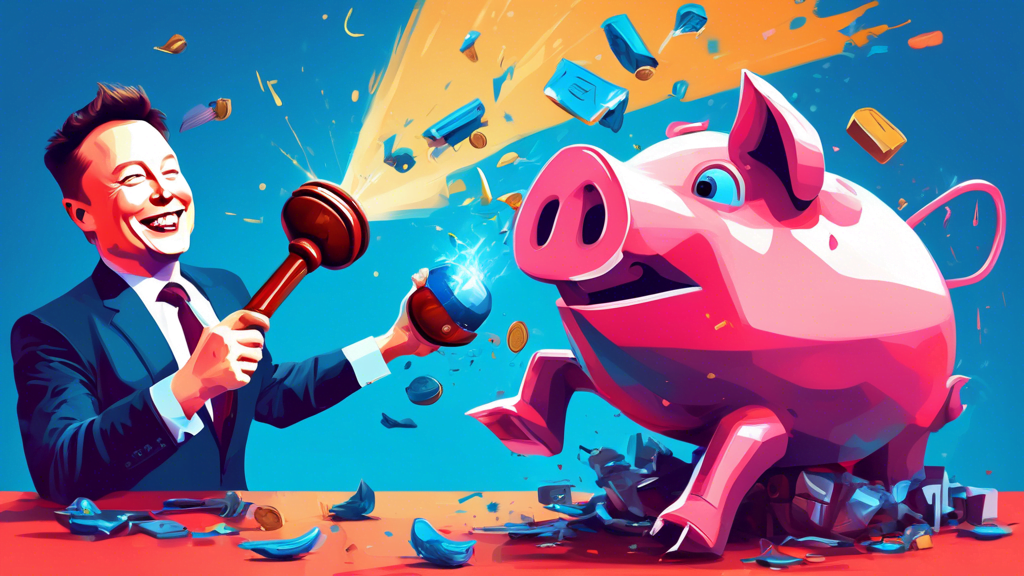Court Rules Elon Musk Not Obligated to Pay $500 Million in Severance to Former Twitter Employees
A Significant Victory for Elon Musk and Twitter in Ongoing Legal Battles
In a resounding legal victory for Elon Musk and X Corp. (formerly Twitter), a Delaware court ruled that the company is not obligated to pay a $500 million severance package to former employees laid off after Musk’s acquisition of the social media giant. The ruling, delivered by Chancellor Kathaleen St. J. McCormick of the Delaware Court of Chancery, marks a pivotal moment in the ongoing legal saga surrounding Musk’s turbulent takeover of Twitter.
Background of the Case: Promises and Layoffs
The lawsuit stemmed from promises made by Twitter to its employees prior to Musk’s acquisition. To provide reassurance and stability during the transition period, Twitter assured employees that they would receive generous severance packages, including two months of base pay, prorated bonuses, and continued healthcare coverage, if they were laid off as a result of the acquisition.
However, following the completion of the $44 billion acquisition in October 2022, Musk embarked on a series of aggressive cost-cutting measures, including mass layoffs that saw thousands of Twitter employees losing their jobs. While some employees received severance packages, many argued that the offered amounts fell short of the promised two months of base pay and other benefits. This discrepancy led to allegations that Musk and Twitter had reneged on their commitments, prompting a class-action lawsuit demanding the full $500 million initially earmarked for severance payments.
The Court’s Decision: Interpretation of Contractual Obligations
Chancellor McCormick’s ruling hinged on the interpretation of the language used in Twitter’s employee agreements and the merger agreement between Musk and Twitter. The court found that the language guaranteeing severance payments was not sufficiently specific to constitute a legally binding obligation for the full $500 million.
The court emphasized that the merger agreement, which governed the acquisition, did not explicitly require Twitter to reserve or pay out the full severance amount. Furthermore, the court noted that the language in employee communications regarding severance was aspirational rather than legally binding. The court’s decision highlighted the importance of unambiguous language in contractual agreements, particularly in complex transactions like mergers and acquisitions.
Implications for Elon Musk and Twitter: Navigating Legal and Financial Challenges
This ruling represents a significant legal and financial victory for Musk and X Corp. It relieves the company of a substantial financial burden at a time when it is grappling with declining advertising revenue, mounting debt, and fierce competition in the social media landscape. The decision also bolsters Musk’s position as he continues to reshape Twitter into his vision of an everything app, pursuing ambitious goals in the face of ongoing legal challenges and market scrutiny.
Read About Mastodon, a Twitter/X Alternative, Attracts Journalists with a New Byline Feature
Lessons for the Future: Importance of Clear Contractual Language
The case serves as a stark reminder of the importance of clarity and precision in contractual agreements, especially in situations involving significant financial stakes. Companies undergoing mergers, acquisitions, or other major transitions should ensure that their employee communications and contractual obligations are clearly defined to avoid potential legal disputes and reputational damage.
For employees, the case underscores the need for vigilance and a thorough understanding of their rights and entitlements during corporate transitions. Seeking legal counsel and carefully reviewing employment agreements can provide employees with clarity and protection in uncertain times.
The Ongoing Saga: Future Legal Battles and Twitter’s Transformation
While this ruling provides a moment of respite for Musk and X Corp., the legal battles surrounding the Twitter acquisition are far from over. Numerous other lawsuits, ranging from allegations of unpaid rent to disputes with former executives, continue to demand Musk’s attention and resources.
As Musk presses forward with his ambitious plans to transform Twitter into a multifaceted platform encompassing payments, news, and other services, he is likely to face continued scrutiny and legal challenges. The outcome of these ongoing battles will shape not only the future of Twitter but also the broader landscape of tech industry regulations and worker rights in the digital age.
